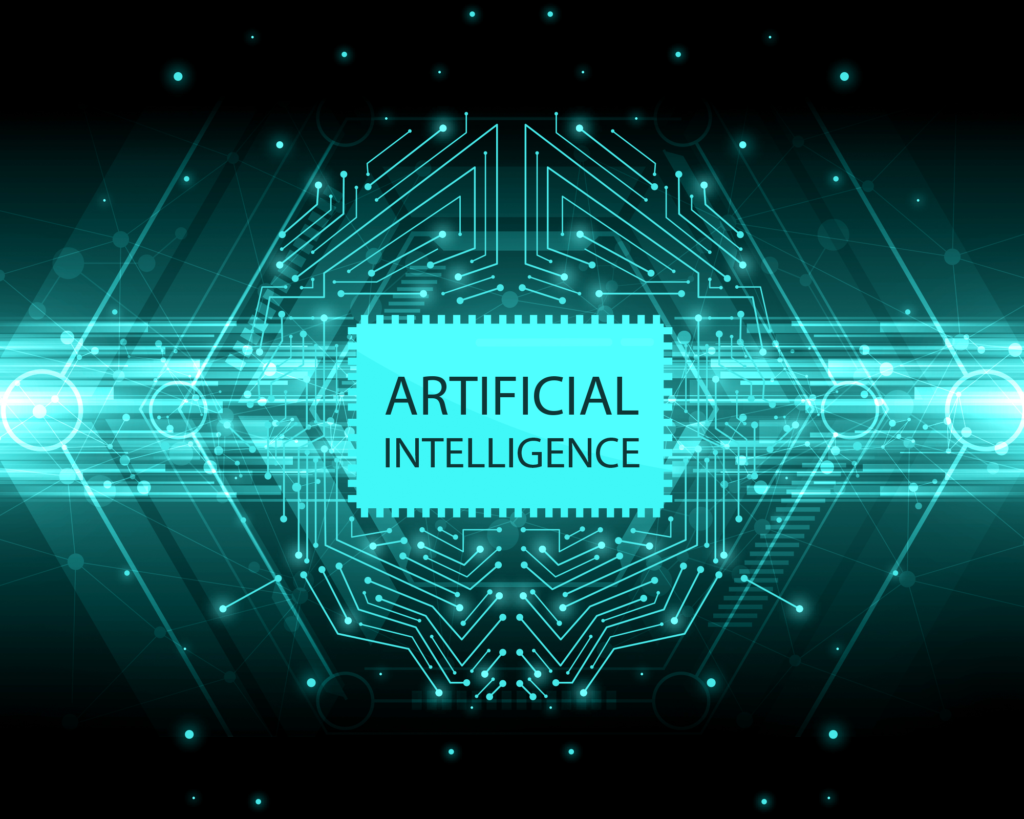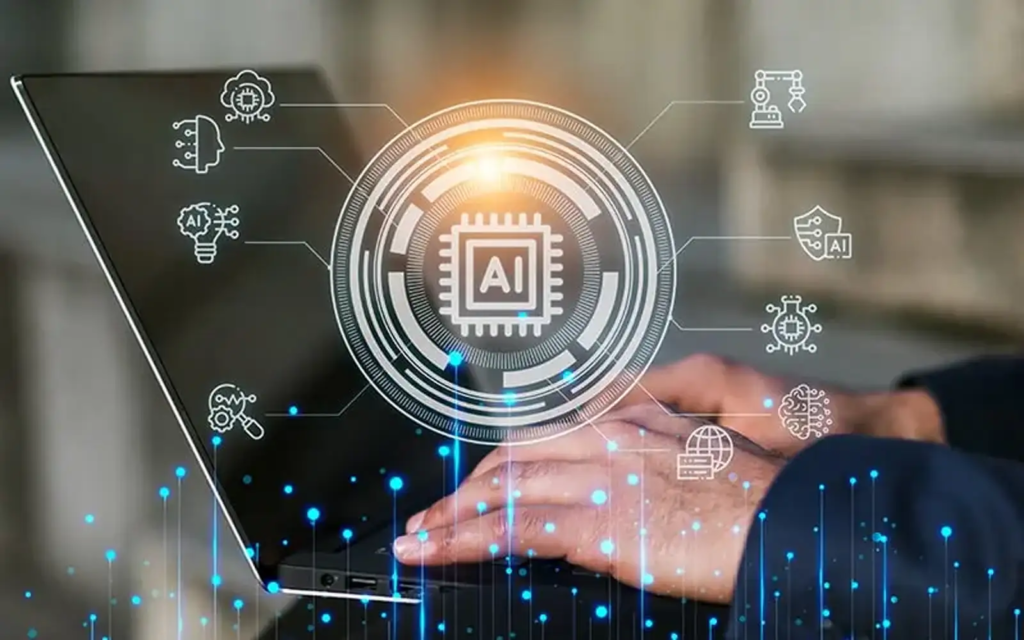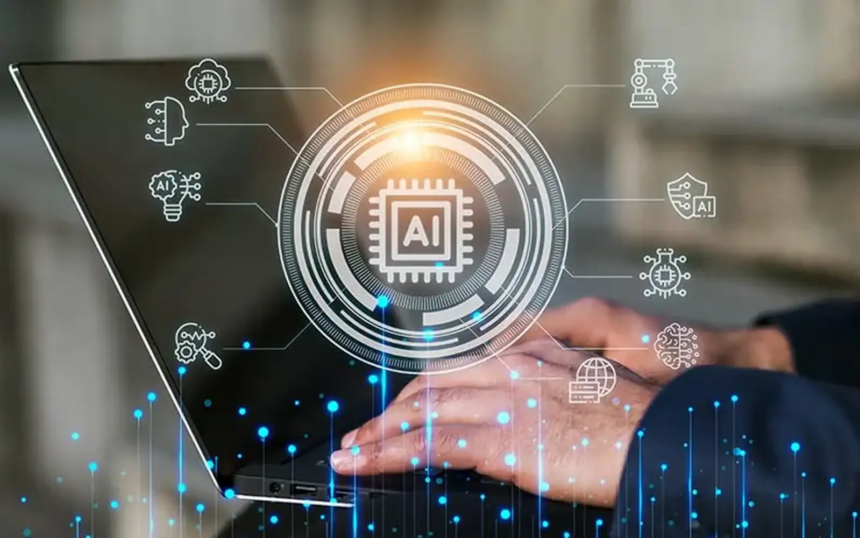Artificial Intelligence (AI) has taken center stage in modern technology, transforming industries and influencing how we live and work. From groundbreaking advancements in generative AI to ethical debates about its regulation, AI continues to evolve rapidly. In this detailed article, we’ll explore the latest developments in AI, its impact on various sectors, and what the future holds.
What is Artificial Intelligence?
Artificial Intelligence refers to the simulation of human intelligence in machines programmed to think, learn, and perform tasks. AI can analyze data, recognize patterns, and make decisions with little to no human intervention. The technology has evolved over the years, moving from simple automation to advanced systems capable of mimicking human creativity and problem-solving.

Current Updates on AI
1. Generative AI: A Game-Changer
Generative AI, powered by models like ChatGPT and DALL·E, is one of the most exciting advancements in AI. These tools can create text, images, music, and even code. Industries such as marketing, education, and entertainment are already leveraging these tools for content creation, customer engagement, and personalized experiences.
For instance:
- Content Creation: Businesses use generative AI to draft articles, blogs, and advertisements.
- Entertainment: AI generates realistic characters for games and films.
- Education: Generative AI helps create tailored learning materials for students.
2. AI in Healthcare
Healthcare has embraced AI in diagnostics, treatment planning, and patient care. For example:
- AI algorithms analyze medical images to detect diseases like cancer at early stages.
- AI-driven drug discovery accelerates the creation of new medications, reducing the time it takes to bring them to market.
- Virtual health assistants powered by AI improve patient communication and healthcare accessibility.
3. AI and Autonomous Systems
Autonomous vehicles and drones are no longer futuristic concepts. AI enables self-driving cars to navigate complex environments and delivery drones to reach remote locations. Companies like Tesla, Waymo, and Amazon are at the forefront of this technology.
4. Natural Language Processing (NLP)
AI’s ability to understand and generate human language has advanced significantly. NLP powers virtual assistants like Siri, Alexa, and Google Assistant, making them more conversational and context-aware. Businesses use chatbots to provide 24/7 customer support and streamline operations.
5. AI in Creative Industries
AI is now entering creative fields:
- Art and Design: AI tools like MidJourney allow artists to create unique visuals.
- Music Composition: AI software generates melodies and soundtracks.
- Video Editing: AI automates tasks like scene transitions, making video production faster.

AI’s Impact on Different Industries
1. Finance
AI improves fraud detection, risk management, and personalized banking experiences. Algorithms analyze large datasets to provide insights into market trends and help with algorithmic trading.
2. Manufacturing
AI-powered robots streamline production processes, reducing costs and increasing efficiency. Predictive maintenance minimizes machine downtime, enhancing overall productivity.
3. Education
AI-driven platforms provide personalized learning experiences by assessing each student’s strengths and weaknesses. Adaptive learning tools, powered by AI, help educators improve student outcomes.
4. Retail and E-commerce
AI enhances customer experiences with personalized product recommendations, smart inventory management, and virtual shopping assistants.

Ethical Challenges in AI
1. Bias in AI Systems
AI algorithms often reflect biases present in the data they’re trained on. This can lead to unfair outcomes, such as discrimination in hiring or loan approvals.
2. Privacy Concerns
AI relies on vast amounts of data, raising questions about how personal information is collected, stored, and used.
3. Job Displacement
Automation through AI has led to concerns about job losses, particularly in industries like manufacturing and customer support.
4. Accountability
As AI becomes more autonomous, questions arise about who is responsible when AI systems make mistakes or cause harm.

The Future of AI
1. Artificial General Intelligence (AGI)
While current AI is designed for specific tasks, researchers aim to develop AGI, a system capable of performing any intellectual task a human can. AGI could revolutionize industries but also poses significant ethical and regulatory challenges.
2. AI for Climate Change
AI is being used to monitor deforestation, optimize renewable energy sources, and predict weather patterns. It plays a critical role in addressing global environmental issues.
3. AI Regulation
Governments and organizations are developing frameworks to regulate AI. The goal is to ensure ethical use, promote transparency, and prevent misuse.
4. AI in Space Exploration
AI is aiding space agencies like NASA in analyzing data from distant planets, improving space mission planning, and developing autonomous robots for exploration.
FAQs About AI and Its Future
1. What is Generative AI?
Generative AI refers to systems that create new content, such as text, images, or music, based on patterns in existing data.
2. How is AI used in healthcare?
AI assists in diagnostics, treatment planning, drug discovery, and patient care management, making healthcare more efficient and accessible.
3. What are the ethical concerns of AI?
Ethical concerns include bias in decision-making, privacy issues, job displacement, and accountability for AI-driven mistakes.
4. What is Artificial General Intelligence (AGI)?
AGI refers to AI systems capable of performing a wide range of intellectual tasks, similar to human intelligence.
5. How does AI impact job markets?
While AI automates repetitive tasks, it also creates opportunities in fields like AI development, data analysis, and machine learning.
6. Can AI help combat climate change?
Yes, AI helps optimize renewable energy, predict environmental changes, and monitor deforestation, contributing to sustainability efforts.






